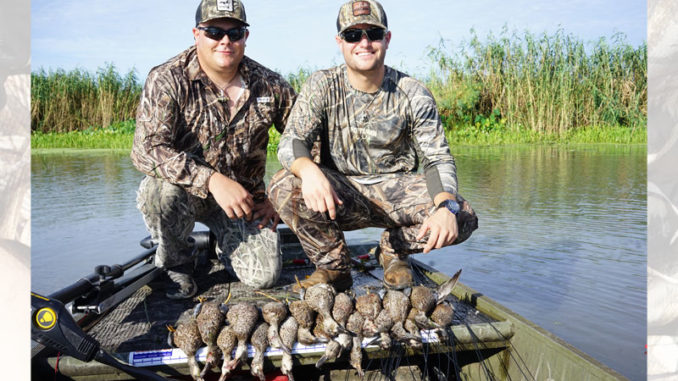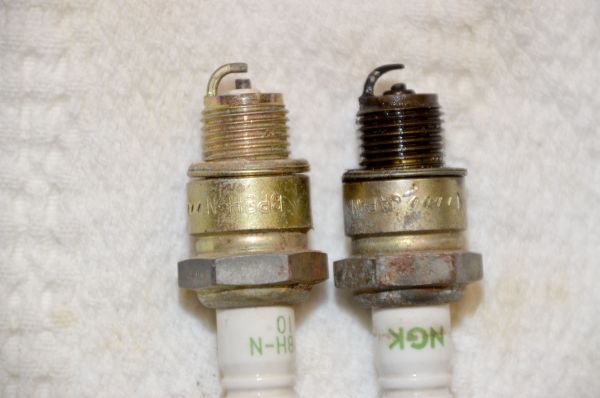
“We make good money of the neglect that duck boats get,” Hank Johnston bluntly said.
“But we’d rather not,” son Andy finished the sentence.
I had just sat down in the office of The Boat Doctor Inc.
The father-son duo built the business around being master boat mechanics. Some years ago, they began selling Mud Buddy mud motors and Gator Trax shallow-water boat hulls.
 Selling and servicing shallow-water boats has come to dominate their business, so they were the perfect people to interview on getting a duck boat ready to hunt.
Selling and servicing shallow-water boats has come to dominate their business, so they were the perfect people to interview on getting a duck boat ready to hunt.
Here are their tips:
1) Dump any fuel left in tanks from the previous year. Ethanol does not in itself hurt an engine, but it is a water magnet. Also, alcohol evaporates more quickly than gasoline, reducing the octane of the remaining fuel. Fuel lines should also be replaced every couple of years because of deposits from the fuel that can flake off and clog carburetors.
2) Propeller performance is critical on a mud boat. They will get dinged because of how the boats are used, and nothing hurts a motor more than a prop that is out of balance.
Call the manufacturer and get the prop’s measurements. Or better yet, take it to a prop shop to get the pitch, diameter and balance checked. It only takes minutes for a shop to check it out. Often it is cheaper to buy a new prop than to repair a damaged one; one to two hours labor on a damaged prop can cost $150, compared to the $200 price for a new one.
3) Check the boat’s battery. Clean it, add water and charge it, and then check it to see if it held the charge.
4) Check the boats electrical equipment, including running lights, spot light, bilge pump and GPS. Check the kill switch.
5) Check the air pressure on the boat trailer’s tires. Low air pressure is deadly on tires. Air will naturally leak from the tires through the rubber and where the rubber meets the galvanized wheel. Tires sitting in one place for as little as a month can increase air leakage.
6) Check the trailer’s lights.
7) Check the trailer’s bearings. Jack up one side at a time. Grab the tire on opposite sides by hand and torque it each way to check for slack. Spin the tire. If you hear nothing but air, it is OK. If it growls or howls, you have problems.
8) Eye the trailer frame for excessive rust or cracks and flat springs. The average life for boat trailer springs is five to eight years.
9) Check the owner’s manual for engine maintenance needs and perform them — grease, oil filter, oil, air filter, gasoline filter and spark plugs.

10) Check the owner’s manual for engine frame maintenance requirements. It is important to follow them closely. Adding too much grease can cause damage.
11) Crank the engine and listen closely. If the outdrive growls, you have problems.
12) Take it for a test drive, the only way you will know how it will act on the water is put it on the water. This test drive functions as the carburetor check.
A normal fishing trip is not a good test because it is easy to spend more time focusing on the fishing than the motor.